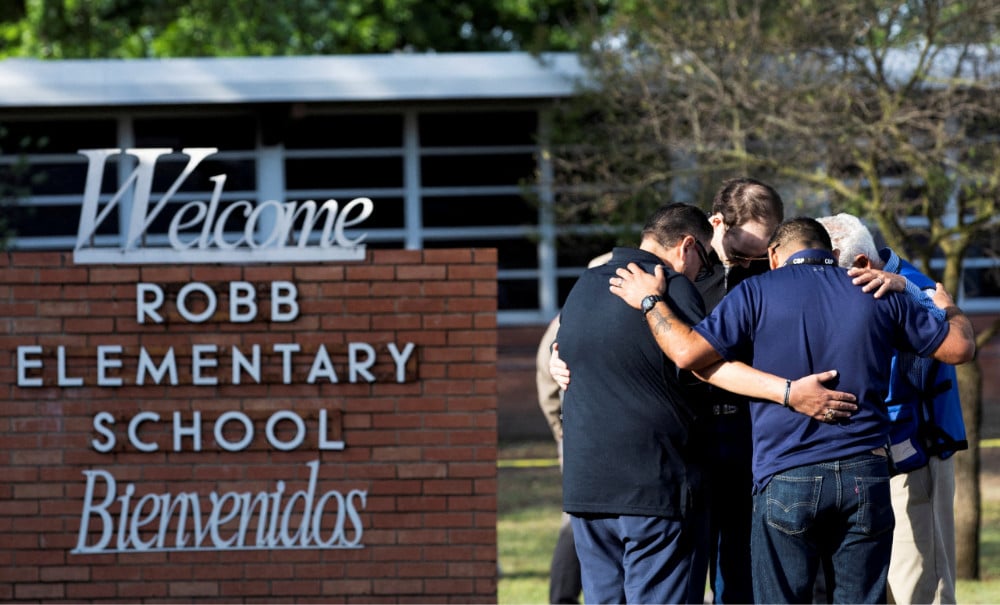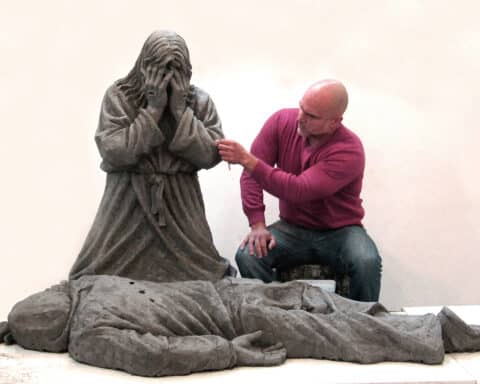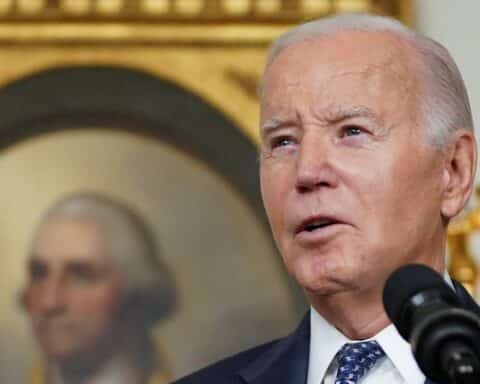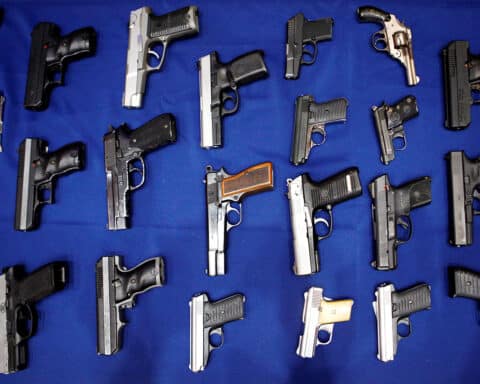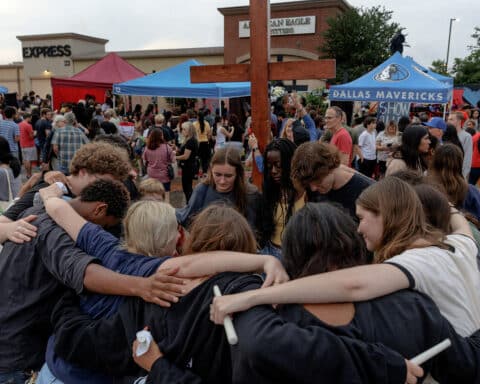In the space of 11 days in May, 31 people were killed in two mass shootings in the United States: 10 on May 14 in Buffalo, New York, and 21 (including 19 elementary-aged children) in Uvalde, Texas, on May 24. The Uvalde shooting was the 27th at a school in 2022. And this doesn’t even account for the “routine” killings through mid-May 2022 in such cities as Chicago (222), New Orleans (110), Baltimore (129), Philadelphia (193), and New York (163). The vast majority of these murders were by gunshot.
While many factors contribute to this proliferation of gun-related deaths, at least one cause is the fundamental moral language at the very foundation of American law and politics, that of possessive “individual rights.” It is a language that tells us not only that we are naturally isolated from one another but that we are all common enemies. And we Catholics are just as seriously implicated in its proliferation as anyone else.
Of course, it is a mistake to ignore the particularities of specific events in addressing the causes of gun violence. We must take into consideration the various elements that have contributed to this person shooting these victims in this place. Mental illness is frequently (but not always) associated with mass shootings. Nor can we remove the moral responsibility of individual persons who commit heinous crimes by making abstract generalizations about the causes of broad social pathologies. Individual moral agency is not abrogated by cultural forces, regardless of how strong they are.
But it is no less a mistake to focus solely on the individual cases without considering the culture that is created by the moral languages and political stories that have made us into a country — unique among Western democracies — where gun violence is as routine as the morning box scores. In the United States, that language and those stories — from the far right to the far left — are variations on liberalism. Liberalism is the substantive political ideology that tells us we are isolated rivals by nature, whose primary instincts are to protect ourselves from one another. It is, in the words of its most important philosophical progenitor, Thomas Hobbes, “a war of every man against every man.” The lingua franca of this moral philosophy, “individual rights,” inevitably, ineluctably and probably necessarily, leads to violence. Broad availability of guns designed for no other purpose than to kill people makes that violence deadly.
Of course, for the vast majority, this is not manifest in shooting our neighbor. But by being so immersed in the language of atomistic individualism, we contribute to the political culture in which shooting our neighbor is merely the extreme version of the basic story. Most of us don’t reach this extreme. But there’s no rational reason to be surprised when it occurs.
And we Catholics must face the hard truth that we are largely complicit in the promulgation of this story. So immersed are we in the substantive narrative of American individual rights, we have lost the critical distance even to recognize the tension that it creates with what should be our commitment to human solidarity and common good, two of the pillars of Catholic social doctrine. Whether in resisting vaccines or defending the proliferation of guns, we use the very rhetoric of possessive individual rights that contributes to this manifestation of the culture of death.
Before you start looking for the comments box, ask yourself these questions related to when you hear news of a mass shooting: Is my reflexive impulse to wonder how we can reduce the proliferation of guns in the United States, to reduce the probability of more shootings? Or is my first instinct to maintain and defend the “right” to own guns, despite the shooting?
I am not arguing that the problem can be solved by stricter gun-ownership laws. Nearly everyone knows the common trope that gun violence is as high, or higher, in cities with strict gun laws as in those with liberal ones. Nor am I suggesting that gun ownership should be outlawed. But if we are honest with ourselves, we know that this debate is not about the ownership of hunting rifles and shotguns. It’s about the proliferation of guns where the purpose is nothing other than killing people in large numbers and in a short time. And our defense of ownership of these guns is a direct manifestation of our fetishization of individual rights.
Now, to be sure, even Church documents use the language of rights. But these are not individual claims of autonomy, rooted in an isolationist moral philosophy. Rather, they are immunities or privileges correlative of a proper foundation for thinking about our lives together, human solidarity and common good. These are the moral categories that Catholics should reflexively apply to social pathologies; and they are the moral categories that might contribute to an actual culture of life together. But by our far more typical invocation of individual rights, we continue to contribute to the pathologies that we abhor.
Kenneth Craycraft is the James J. Gardner Family Chair in Moral Theology at Mount St. Mary’s Seminary and School of Theology in Cincinnati.

